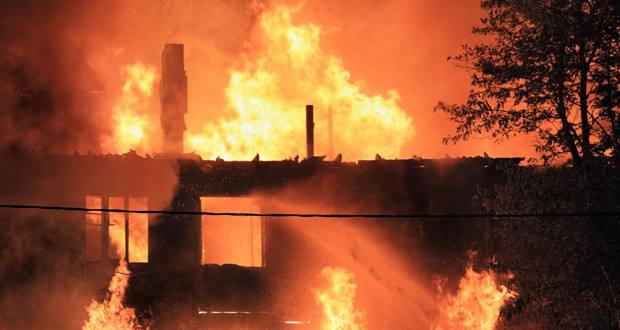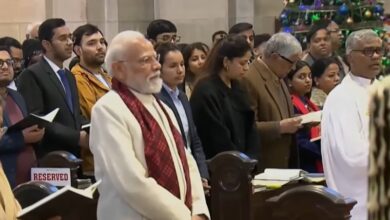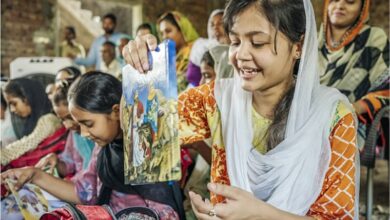Over 30 churches attacked, clergy and members killed in rising unrest in Ethiopia

During the past two years since a young prime minister has taken over as the new leader of Ethiopia, more than 30 churches have been attacked with more than half of the buildings burned to the ground.
In addition, clergy and church members have also been killed trying to defend their church buildings against attacks from ethnic mobs.
The churches being targeted belong to the Ethiopian Orthodox Tewahedo Church (EOTC), which has a long and colorful history in the African nation.
Christianity Today reports Ethiopian Prime Minister Abiy Ahmed, a Christian and a member of the Full Gospel Believers Church, was awarded the Nobel Peace Prize last month for his “efforts to achieve peace and reconciliation.” But some in the country say the peace prize was premature.
On Monday, Ahmed announced almost 90 people in his country had been killed during the month of October, victims of the unusual unrest and recurring ethnic and religious violence.
Ethiopia is a nation of contrasts. It is one of the world’s most religious countries. Ninety-eight percent of the population claim some kind of religious affiliation, according to the New African Magazine. However, the country has always been marked by ethnic strife.
Last year, Ethiopia’s rate of internally displaced persons exceeded Syria’s. The nation currently leads the world with 2.9 million people displaced by violence, according to the Internal Displacement Monitoring Center.
“There is a feeling of siege among many followers of the Ethiopian Orthodox Church,” Elias Gebreselassie, a journalist based in Addis Ababa told the magazine. “The burning of churches could lead to a wider distrust within society and could be a time-bomb.”
About half of the population of 100 million claim membership in the EOTC, making it the largest church in the nation. Muslims make up 35 percent of the population with Protestants, Catholics and various tribal religions making up the remaining 15 percent.
At present, Ethiopia does set an example to the world as Christians and Muslims mostly live together in harmony. Intermarriage is common, while both sides recognize and celebrate each other’s religious holidays, according to the New African.
“Historically, Ethiopia is a state where diverse groups have excelled in living together in harmony,” Ethiopian Orthodox priest Nehemiah T. Geth told the magazine. “Ethiopia is one of the few countries where Christians and Muslims live together peacefully with mutual respect and proximity.”
But according to EOTC members, attacks on Christians have risen over the last 30 years. With the rise of church burnings in the last two years, some wonder if Muslim extremism is taking hold in the country.
But William Davison, the International Crisis Group’s senior analyst for Ethiopia, believes the attacks may not be from religious extremists, but from others with political reasons in a country made up of several diverse ethnic groups.
Even though Christianity is intertwined in Ethiopian culture, some see the attacks against churches as a revolt against the EOTC, which some believe is out of step with the times.
Known as reformer, Ahmed, 43, has tried to quell the violence in his country. He is admired by many.
“I see Abiy as an answer to prayer,” said Frew Tamrat, principal of Evangelical Theological College in Addis Ababa, the capital city told Christianity Today. “He tries to live by biblical values. He is a preacher of peace, reconciliation, and forgiveness.”
But Ahmed’s detractors say the prime minister’s views on love, peace and reconciliation may be one of the causes of the deterioration of law and order in the country.
“Expecting people to love one another and to live in peace with one another just because a leader of a country speaks about these topics is not practicable,” Tedla Woldeyohannes, an Ethiopian professor of philosophy at Harris-Stowe State University in St. Louis, Missouri, argued in an op-ed for ECAD Forum. “A leader’s commitment to a country is to protect the safety and security of citizens, not to exercise patience toward criminals.”
Tewodrose Tirfe of the Amhara Association of America told the New African there’s been no announcement of an effort by the prime minister’s government to stop the attacks.
“Prime Minister Abiy Ahmed and his administration have not addressed the targeting of church burnings, nor presented a plan to safeguard churches and Christians in the areas where they are being attacked,” he said. “He should not stay silent because the longer he’s silent and does not take action, the longer Ethiopians and the perpetrators will view it as not being a priority for Abiy Ahmed’s administration.”
Yet, the people of Ethiopia continue to long for peace within their own country. According to Christianity Today, at a recent festival in Addis Ababa, celebrating the fourth-century finding of the true cross in the Tewahedo tradition, a half a million people chanted together: “May there be peace, peace, peace for Ethiopia.”
–cbn.com
Ammar chose Christ, then his Muslim wife turned him in to be tortured








